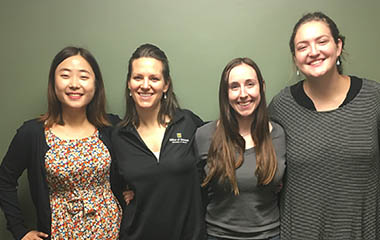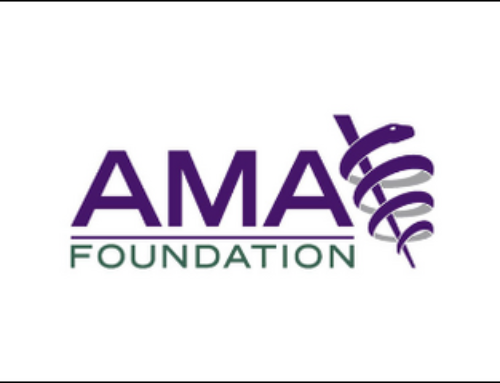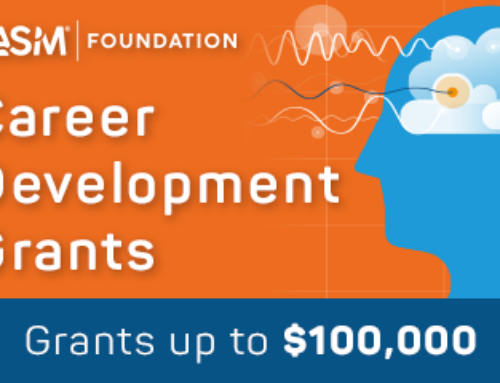Mary Beth Miller, PhD, is a recipient of the 2018 Bridge to Success Award, which led to securing a National Institutes of Health career development award.
Heavy drinking and poor sleep health are commonly reported in returning veterans, and Mary Beth Miller, PhD, is an early-career sleep investigator spearheading a project investigating the efficacy of cognitive behavioral therapy for improving insomnia symptoms and alcohol outcomes among the veteran population.
Miller is a clinical psychologist, assistant professor of psychiatry at the University of Missouri, and a recipient of the 2018 Bridge to Success Award for Early Career Investigators. At the start of her career, her research interest originated in the field of addiction and focused on improving the understanding of substance use disorders in order to improve the effectiveness and efficiency of treatment. Naturally, her interest expanded to the sleep field and evolved into her primary focus today: finding behavioral treatments that improve insomnia and alcohol use among returning veterans.
Miller quickly learned that individuals experiencing problems related to substance use also tend to report problems related to sleep. “I became interested in understanding the interplay of substance use and sleep disorders; specifically, the extent to which the relationship between insomnia and cognitive/emotional state may serve as mechanisms of alcohol-related problems and vice versa,” she said. “This is an important gap in the existing literature, as a large number of studies have examined alcohol as a mechanism for sleep disturbance, but fewer have examined the impact of sleep disturbance on substance-related problems.”
Since previous research suggests that symptoms of insomnia increase risk for alcohol-related harm, the goal of Miller’s 2018 Bridge to Success Award for Early Career Investigators project, “Treating Insomnia among Heavy-Drinking Veterans,” is to determine if improvement in insomnia serves as a mechanism for improvement in alcohol-related problems. In this project, Miller is conducting a randomized controlled trial of 44 heavy drinking veterans with insomnia who will be assigned to receive either Cognitive Behavioral Therapy for Insomnia (CBT-I) or a single-session on sleep hygiene.
The project will specifically examine the feasibility and acceptability of CBT-I in this veteran population, intervention effects on insomnia, cognitive/emotional correlates of insomnia, and alcohol-related outcomes.
“The findings of this study will inform clinical practice by documenting the impact of CBT-I on alcohol outcomes in an understudied population who experience high rates of comorbid substance use and sleep disturbance,” explained Miller. “It will also determine if insomnia treatment may be used to engage and treat individuals at risk for alcohol use disorder who may not otherwise seek or receive appropriate care.”
Thanks to her AASM Foundation award, Miller was able to successfully resubmit a National Institutes of Health grant application and secure funding through a K23 career-development grant. This new grant will provide Miller with mentored training and help facilitate her transition as an independent sleep researcher.
“The AASM Foundation launched my sleep research career by providing me with funding to begin developing independence as a clinical sleep and addictions researcher,” said Miller. “In addition to the training I have now received in subjective, behavioral, and physiological sleep assessment, AASM Foundation funding further allowed me to gain experience recruiting clinical samples and coordinating the logistics of a multi-session randomized controlled trial.”






